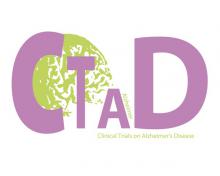The path towards developing effective therapeutics to either cure or prevent the onset of Alzheimer’s disease (AD) and related neurodegenerative dementias has been plagued by challenges. Nevertheless, innovative treatments and clinical frameworks that represent our current understanding of the trajectory of disease may help to reduce morbidity, or delay symptom onset, for patients in the pre-dementia stages. Late-life AD dementia develops over an extended period, first as an asymptomatic phase referred to as preclinical AD, which affects an estimated 46 million people in the United States alone (1). Following preclinical AD is the first symptomatic phase known as mild cognitive impairment (MCI) due to AD. Collectively, both stages offer a unique chance for early intervention.
(1) R. Isaacson, N. Saif J Prev Alz Dis 2020; in press



